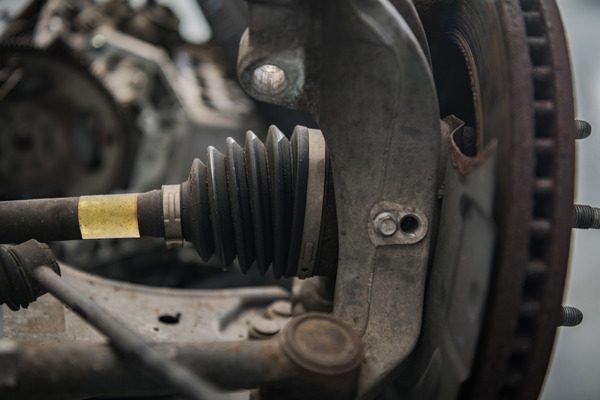
Are you familiar with the term CV joint but need clarification on its significance and what it actually does? If the answer is no, make sure to read along!
We will go on a journey to learn more about the CV joints and explore their pivotal role in ensuring smooth and efficient vehicle operation.
What is a CV Joint?
CV, or constant velocity, joints are components of a vehicle's drivetrain system. These joints are located at the ends of the axle shafts and facilitate the transfer of power from the transmission to the wheels while allowing for smooth rotation at various angles.
Breakdown of a CV Joint
A CV joint consists of several key components, including the inner and outer races, ball bearings, cage, and protective boot. The inner race attaches to the transmission or differential, while the outer race connects to the wheel hub. Ball bearings inside the joint allow for smooth rotation and transfer of power, while the cage holds the bearings in place. A protective boot encases the joint, shielding it from dirt, debris, and moisture.
Function of CV Joints
The primary function of CV joints is to maintain a constant velocity and transmit power efficiently from the transmission to the wheels, even when the vehicle is turning or encountering uneven terrain. This allows for smooth and seamless operation of the drivetrain system, preventing vibrations, noise, and potential damage to other components.
Common Signs of CV Joint Problems
Despite their durability, CV joints can experience wear and tear over time, leading to potential issues. Some common signs of CV joint problems include clicking or popping noises when turning, vibrations or shuddering during acceleration, and torn or damaged CV joint boots. Ignoring these symptoms can further damage the drivetrain system and compromise vehicle safety.
Maintenance and Replacement of CV Joints
As with any other car part, maintenance is essential for prolonging the lifespan and ensuring optimal performance. Inspecting CV joint boots for tears or damage and replacing them as needed can prevent contaminants from entering the joint and causing premature wear. Additionally, addressing any unusual noises or vibrations promptly can help prevent further damage to the drivetrain system.
People Also Ask (Questions & Answers)
How long do CV joints typically last?
The lifespan of CV joints can vary depending on factors such as driving habits, road conditions, and maintenance. CV joints can last between 80,000 to 100,000 miles with proper care and maintenance.
Question: Can I drive with a damaged CV joint?
Driving with a damaged CV joint is not recommended, as it can lead to further damage to the drivetrain system and compromise vehicle safety. It's advisable to have the CV joint inspected and replaced by a qualified technician if necessary.
What causes CV joint failure?
CV joint failure can be caused by factors such as excessive wear and tear, lack of lubrication, contamination by dirt or debris, or damage to the protective boot. Regular inspection and maintenance can help prevent premature CV joint failure.
How much does it cost to replace a CV joint?
The cost of replacing a CV joint can vary depending on factors such as the make and model of your vehicle, labor rates, and whether you choose OEM or aftermarket parts. On average, expect to pay between $150 to $300 for parts and labor per CV joint.
Can I drive with a damaged CV joint boot?
Driving with a damaged CV joint boot is not recommended as it increases the risk of premature wear and failure. Have the boot replaced promptly to prevent further damage.
Have you recently checked up on your car's suspension and drivetrain? If the answer is no, don't worry. Just visit us at Premier Automotive Service, and we will take care of it